

President Donald Trump brokered an historic ceasefire agreement between Israel and Iran on Monday, marking a dramatic pause in the most significant military confrontation between the two foes.
The Monday evening announcement took effect 12 hours later, following a timeline designed to allow final military maneuvers on both sides. However, a barrage of Iranian missile fire in the hours that followed left many Israelis questioning whether the truce had already been violated.
In an interview with Fox News Digital, John Spencer, executive director of the Urban Warfare Institute, said such delayed implementation is not unusual. "It’s hard to turn things off on a switch. You have aircraft in flight. You have forces in position," he explained.
TRUMP BROKERS IRAN CEASEFIRE AS EXPERTS SAY REGIME’S ARSENAL IS SHATTERED BUT THREAT REMAINS
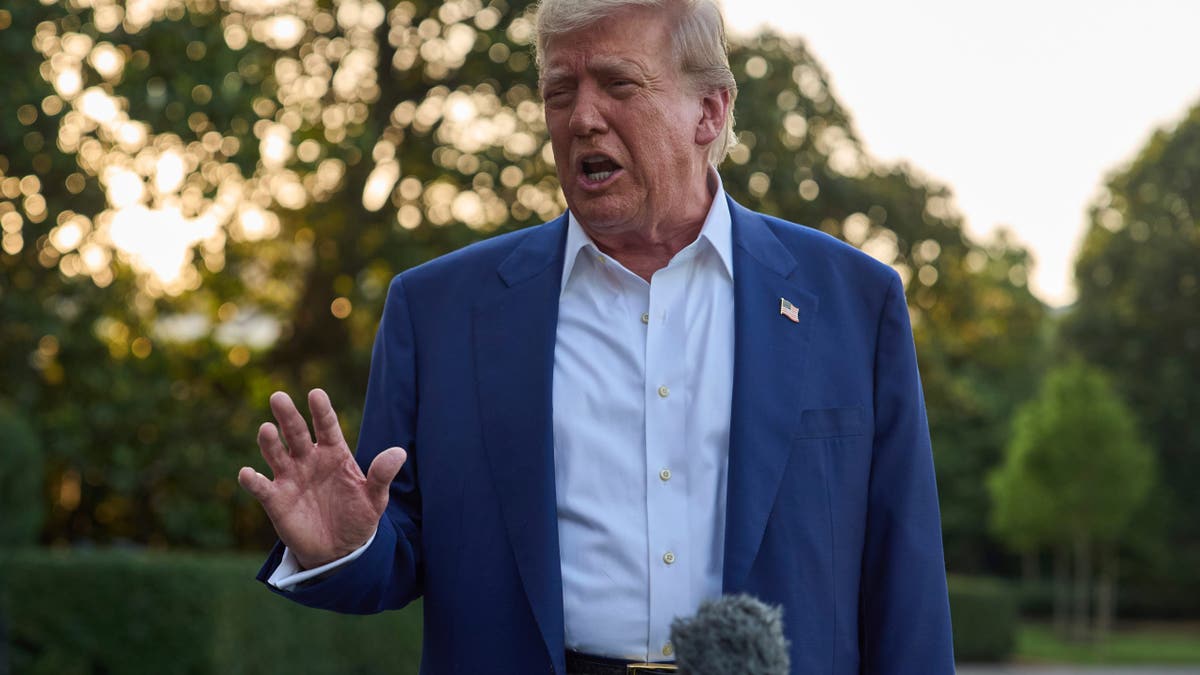
President Donald Trump speaks with reporters on the Israel-Iran ceasefire before boarding Marine One on the South Lawn of the White House on Tuesday, June 24, 2025 in Washington, D.C. (AP Photo/Evan Vucci)
Spencer described the U.S. operation as historic.
"What’s historic is that the U.S. carried out a limited operation on nuclear targets with zero losses—no pilot, no equipment—and helped Israel in a way only America could. Nuclear proliferation is nonpartisan, and this was an apolitical win." Even after Iran struck a U.S. base in Qatar, he added, "the President showed immense restraint and kept focus on the broader goal: preventing Iran from getting a nuclear weapon and continuing its terror campaign."
Despite the violence that followed the announcement — including an Iranian strike that killed four civilians in Israel — Spencer believes the ceasefire will hold. "Both countries have now said we’re absolutely going to do it," he said. "And yes, President Trump is very atypical in the way he communicates with the ceasefire… with the ‘don’t drop a single bomb.’"
To understand how ceasefires like this unfold, Spencer pointed to five historical precedents marked by delayed activation, phased goals, and a final window for military positioning.
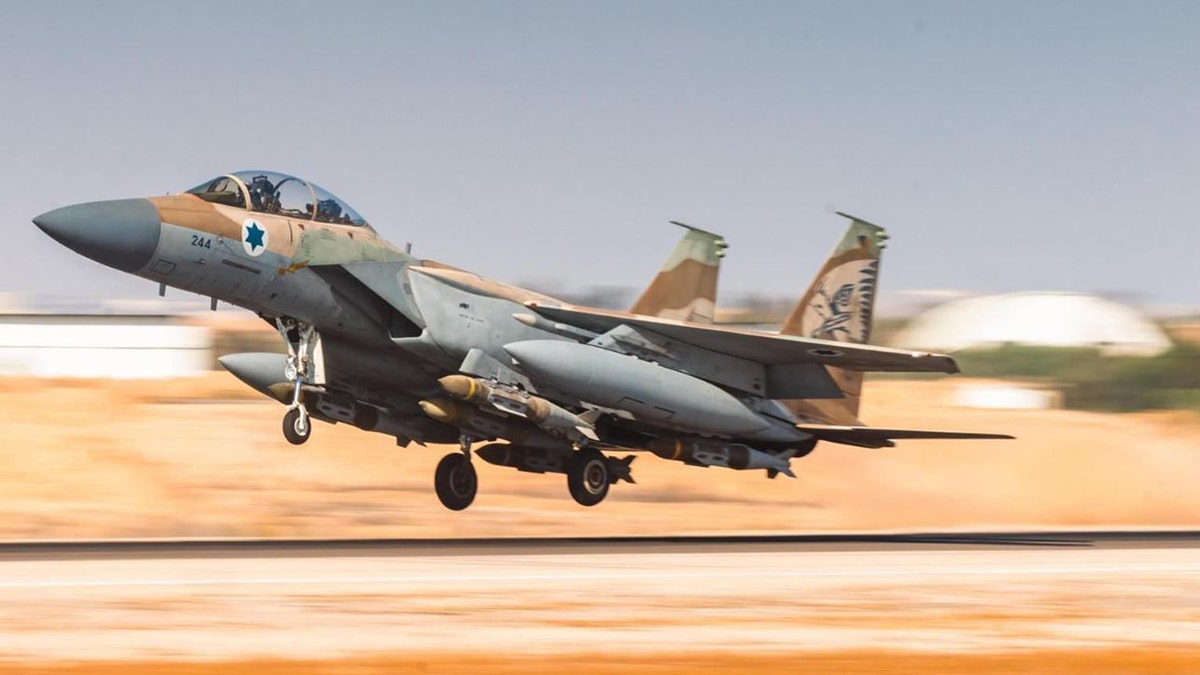
An Israeli fighter jet takes off to launch airstrikes against the Houthis in Yemen. (IDF)
Signed on July 27, 1953, the armistice that ended the Korean War was structured with a deliberate 12-hour delay before taking effect. "This allowed final military movements before a synchronized halt," Spencer said — a model the Israel-Iran ceasefire closely echoes.
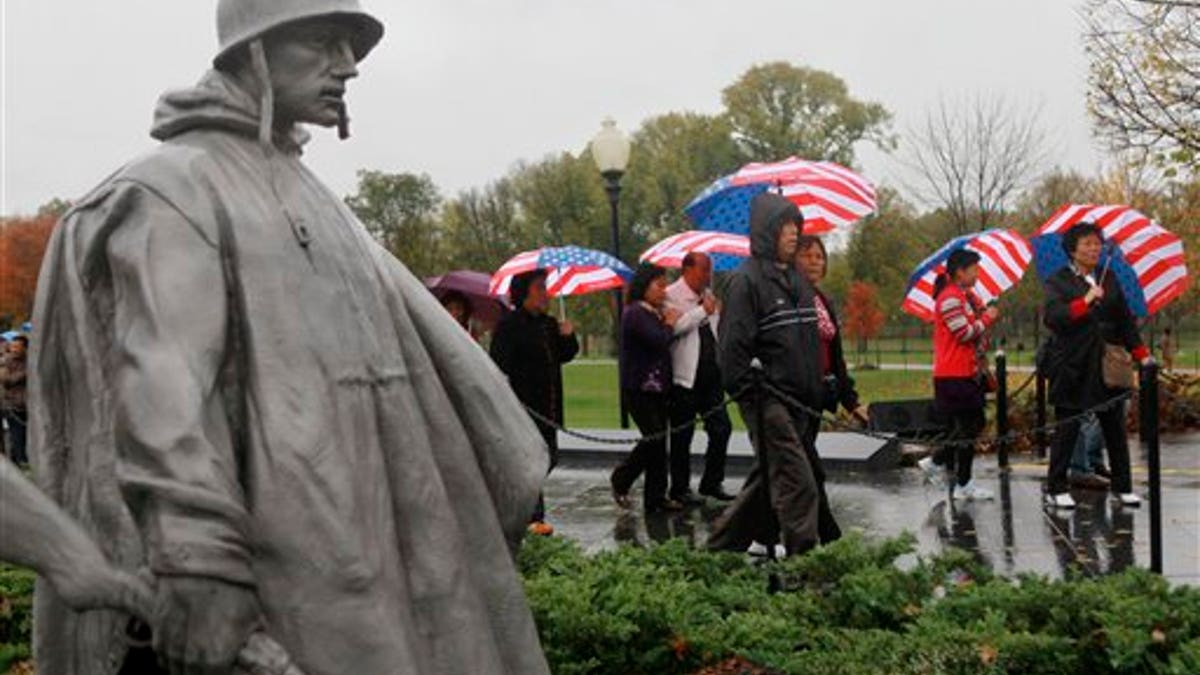
A tour group visits the Korean War Memorial on Veterans Day in Washington, D.C.

Then-Israeli Defense Minister, General Moshe Dajan, left, with then-Major General Ariel Sharon stand on the Egyptian side of the Suez Canal during the 4th Israeli-Arab War on Oct. 18, 1973. (Photo by UPI/picture alliance via Getty Images)
Spencer noted that in 1973, Israel used the final hours before a U.N.-brokered ceasefire to reposition forces. "Israel made a bunch of moves in those last hours… to include encircling the Third Army, moving on Suez City," he said, referencing his case study on the Battle of Suez City.
TRUMP ANNOUNCES HISTORIC IRAN AND ISRAEL CEASEFIRE AGREEMENT TO END '12 DAY WAR'
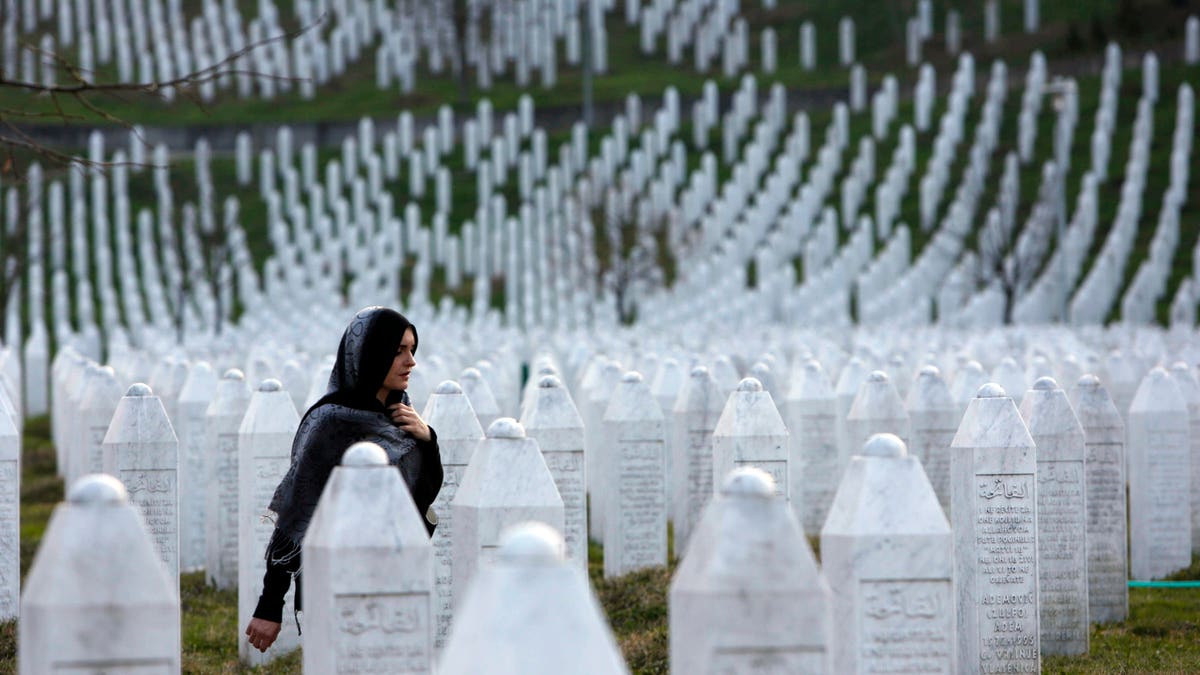
A Bosnian woman walks among gravestones at Memorial Center Potocari near Srebrenica, Bosnia and Herzegovina on March 20, 2016. (AP Photo/Amel Emric)
Ending the Bosnian War, the U.S.-brokered Dayton Peace Accords established a phased timeline for troop withdrawals and political agreements. "That was a U.N., multiple countries signing into an agreement of what both sides would and wouldn’t do," Spencer explained, contrasting it with the looser terms of the current Israel-Iran ceasefire.
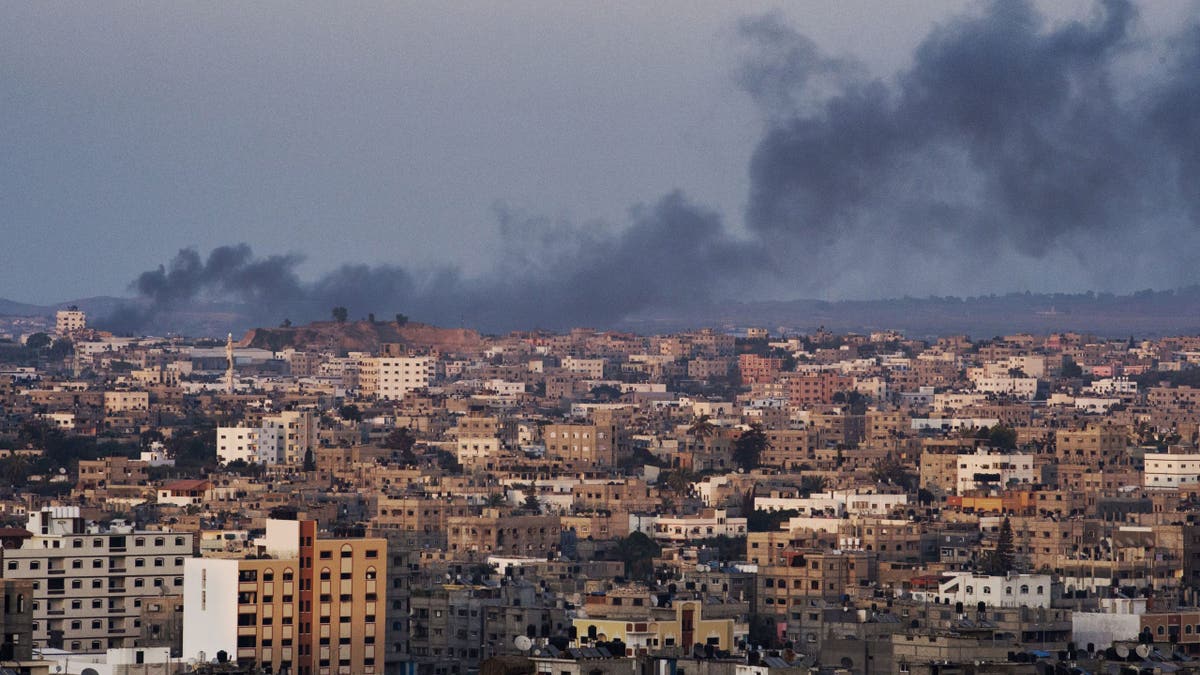
Smoke rises over buildings in the north-east of Gaza City after a missile fired from Gaza landed short of its target on Aug. 21, 2014. (ROBERTO SCHMIDT/AFP via Getty Image)
Spencer also drew parallels to the 2014 war in Gaza. "Hamas would say, ‘Okay, we want a ceasefire… just until the next time they break the ceasefire,’" he said. Many of those agreements had 12- to 72-hour activation delays, similar to what is now seen with Iran.
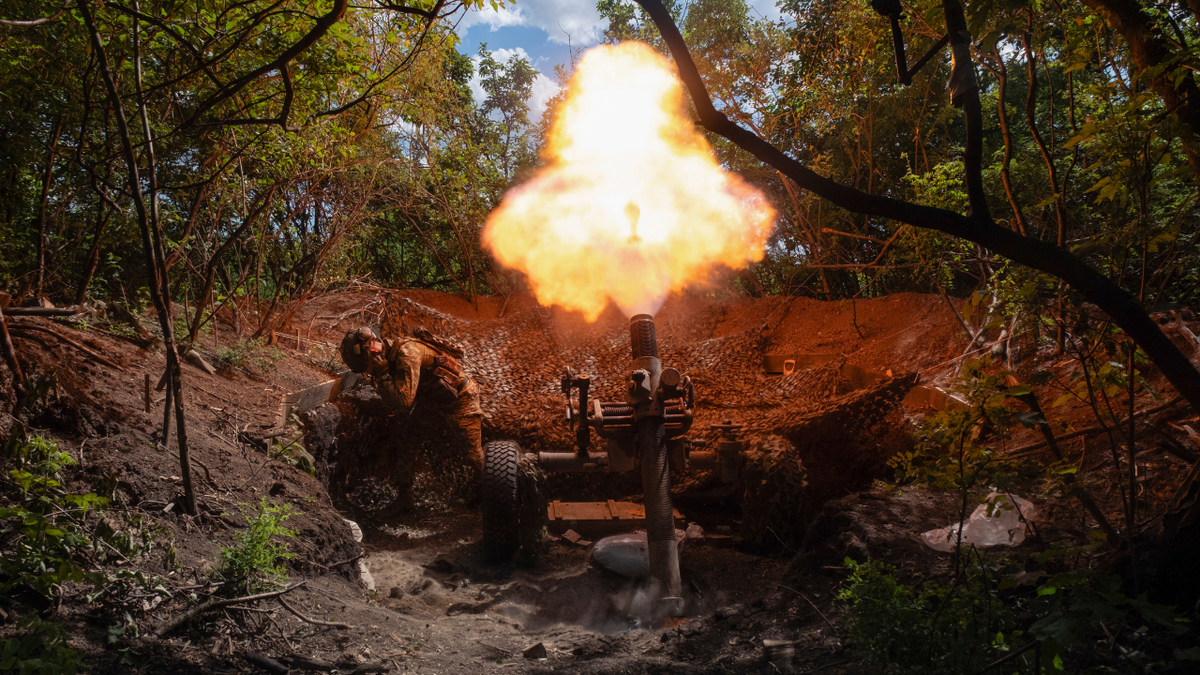
Servicemen of Ukraine's 93rd Mechanized Brigade fire a French MO-120-RT heavy mortar at the Russian forces on the front line near the city of Bakhmut in Ukraine's Donetsk region on Wednesday, May 22, 2024. (Iryna Rybakova via AP)
Even more recently, during the ongoing Russia-Ukraine war, ceasefires were often brief and symbolic. "Putin said, ‘I want three days so I can do my parade,’" Spencer remarked, highlighting how temporary pauses can serve both strategic and political needs.
While past ceasefires were designed to slow escalation, Spencer sees this one as part of a broader strategic doctrine. "To help Israel in a way only United States could, that should be nonpartisan," he said. "For the United States to do a very limited operation, without a single loss of American life… that’s unique."
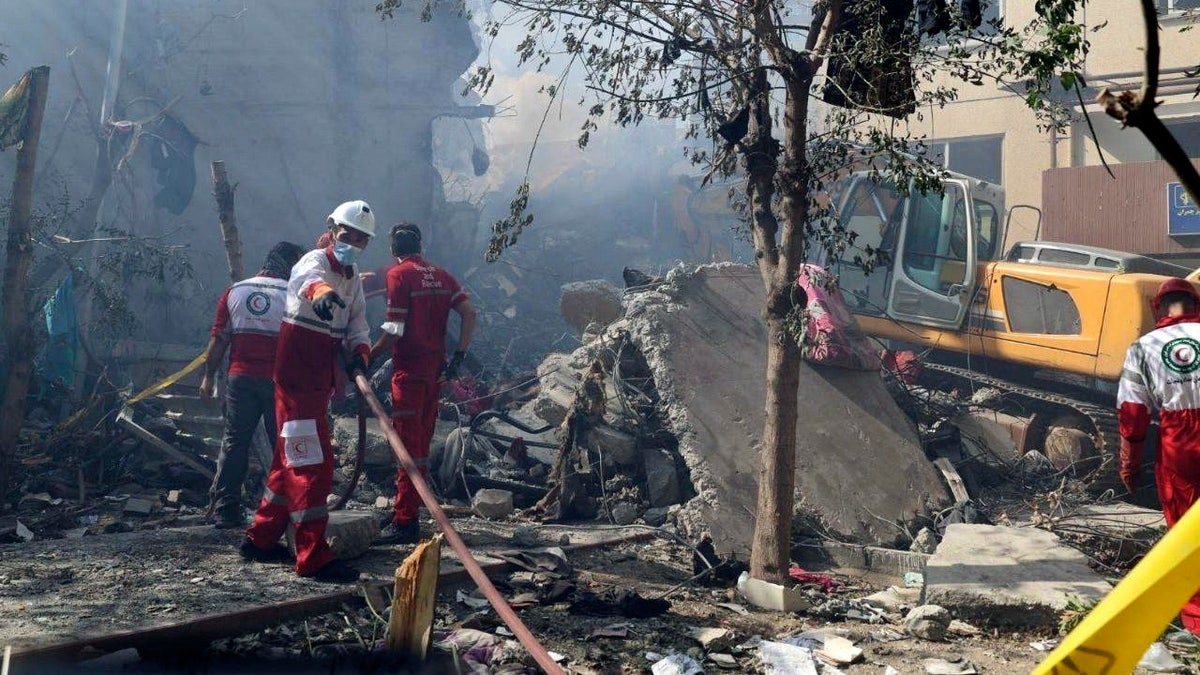
Rescuers work at the scene of an explosion after an Israeli strike in Tehran, Iran, on Friday, June 13, 2025. (Iranian Red Crescent Society via AP)
Spencer described the ceasefire as "an off-ramp" for both sides. "Ceasefire here means that both sides will stop shooting at each other. It doesn’t mean that Iran will stop chanting ‘Death to America and death to Israel,’" he said. "But the operations and hostilities have stopped."
Despite the lack of formal terms or international enforcement, Spencer believes the agreement created a new precedent. "This established a new doctrine," he said, citing Israel’s ability to dominate Iranian skies and the U.S. response to nuclear proliferation threats. "If Iran decides to rebuild some sites somewhere, the threats will be more present than ever."
Spencer concluded, "It is a win. When red lines are really red lines, they are effective at deterrence."
